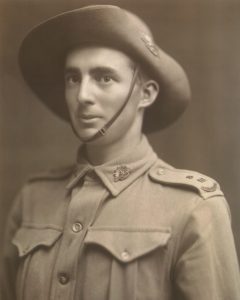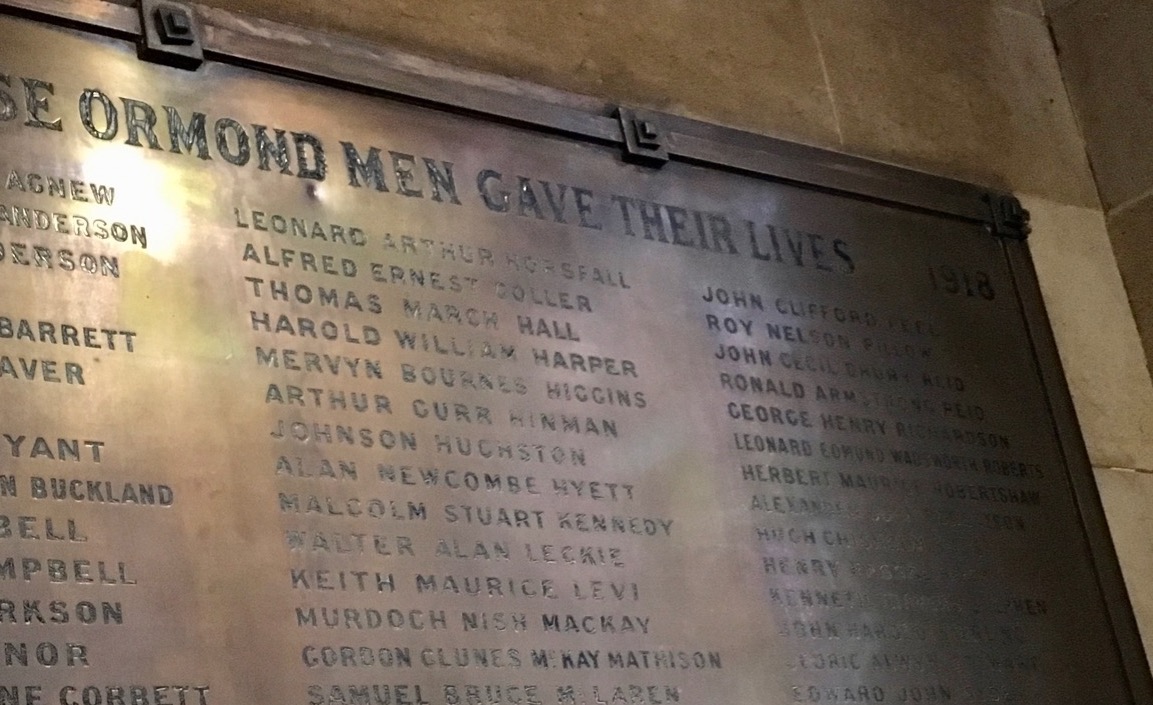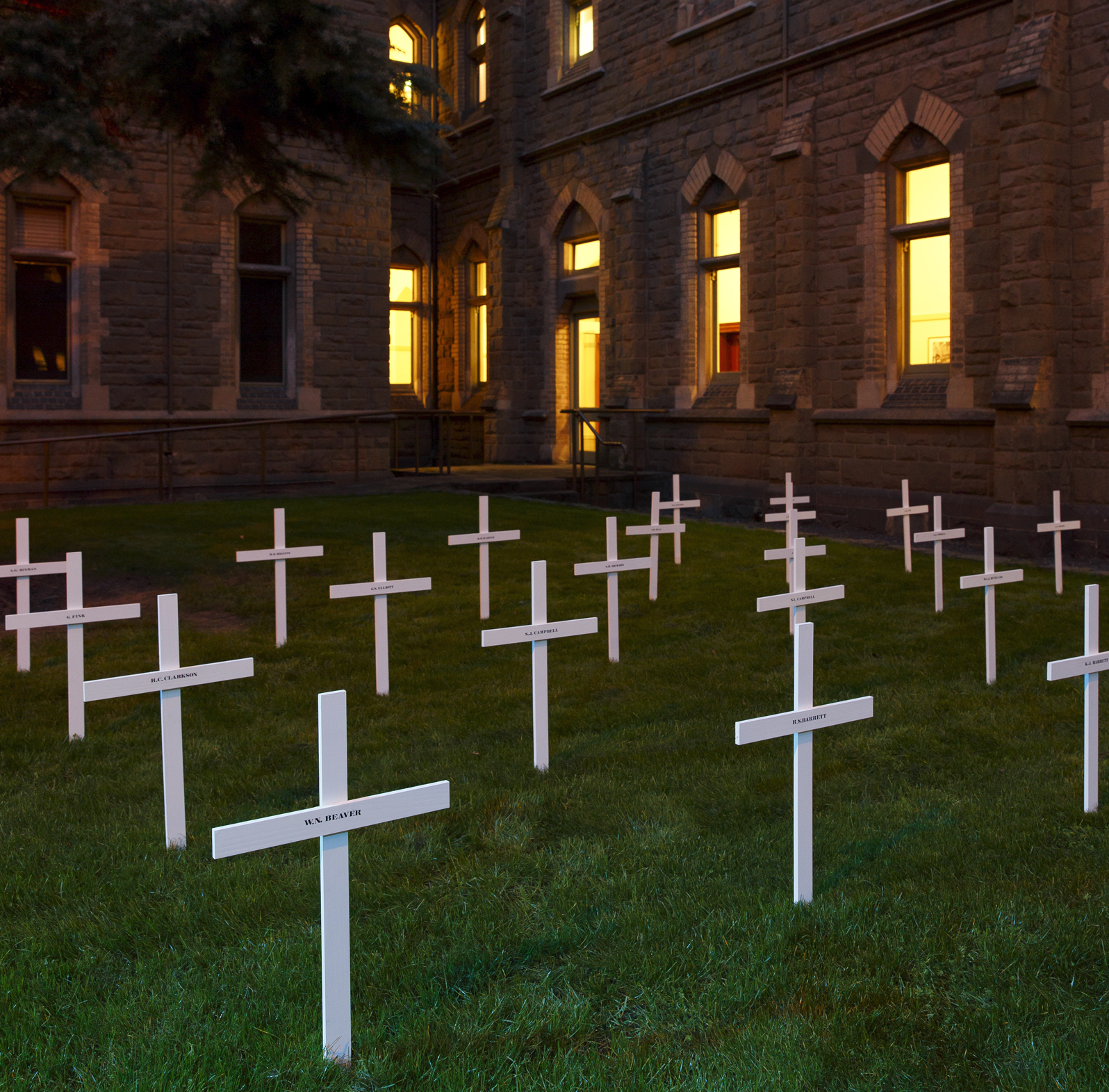On September 2 1914, a dinner was held in the Dining Hall to farewell members of the College who were soon to depart for the War.
In a College of just 90 students, more than 10% had already enlisted to be amongst the first to embark. Those who went to war saw action in all its theatres, from the Middle East, including Gallipoli, to the Western Front – some went to both.
 One of these was a medical student named Eric Whitehead. He was at Gallipoli when a fellow soldier went to hospital with piles, leaving behind a stash of writing paper – a rare commodity in the trenches. Eric used it to write to his father. He describes life at Gallipoli, including how he missed pyjamas and how exciting it was to watch distant explosions under searchlights, although counterattacks made his ‘nerves…a bit jingley’.
One of these was a medical student named Eric Whitehead. He was at Gallipoli when a fellow soldier went to hospital with piles, leaving behind a stash of writing paper – a rare commodity in the trenches. Eric used it to write to his father. He describes life at Gallipoli, including how he missed pyjamas and how exciting it was to watch distant explosions under searchlights, although counterattacks made his ‘nerves…a bit jingley’.
Described by a colleague as ‘one of the most popular fellows in his regiment,’ Eric was promoted to 2nd Lieutenant on 7th August. That day he was part of a contingent that stormed up a ridge towards Turkish troops to distract them from another attack. Facing the full fire of both rifles and machine guns, three waves of attacking Australian soldiers were cut down within 45 minutes. Eric’s body was never recovered. He was one of 59 Ormondians who never returned, in addition to the 185 wounded in body and some uncounted number injured in mind.

This memorial brass outside the Dining Hall lists men who lost their lives in the war.
Ormond wanted to remember Eric and every one of its fallen. For this reason, there’s a small memorial plaque in the room that Eric lived in, as there is for each fallen soldier. In addition, outside the dining hall there are two large brass plaques inscribed with the full name of Eric and all Ormond men who died on active service; its counterpart outside the Middle Common Room has names from both world wars. Finally, surrounding the door from the Junior Common Room into the Quad is a beautifully carved memorial with a clock and Latin inscription.
As well as these permanent memorials, Ormond held a special commemoration on the hundredth anniversary of that 1914 dinner. Ormond students and alumni again gathered in the Hall, this time to remember what unfolded in the long years of war. The commemorative dinner highlighted the proud service and tragic sacrifice made by so many Ormondians. Alumnus Ross McMullin (1972) related the war experience of Ormondian Howard Edward ‘Pompey’ Elliot, perhaps Australia’s most famed fighting general. At the end of the dinner, students read letters and journal excerpts from Ormond WWI combatants and a roll call of the 65 who did not return. A deeply moving occasion, the dinner was one part of the College’s commemorations for the centenary of WWI.

On the centenary of the World War I farewell dinner, named white crosses remembered Ormondians who never returned from the conflict.
Share your Ormond story
Do you have memories of the Ormond art collection? Were you involved in the Brack Committee or visual arts at College? Share your story with the Ormond community.

Recent Comments